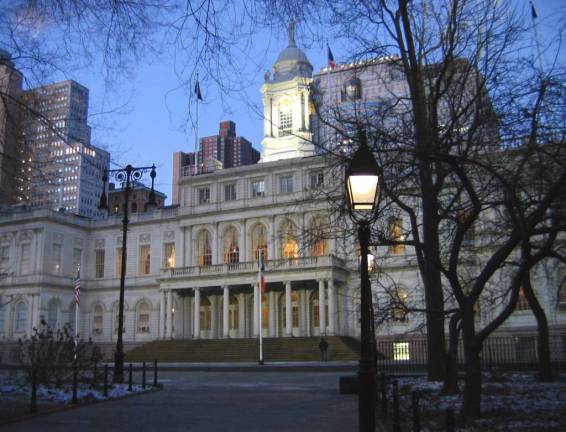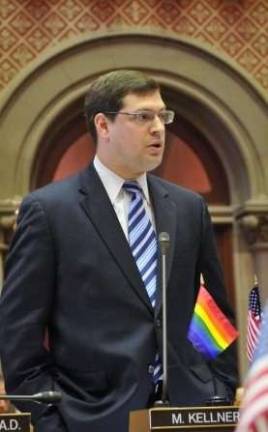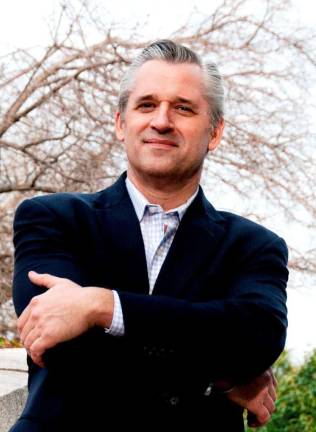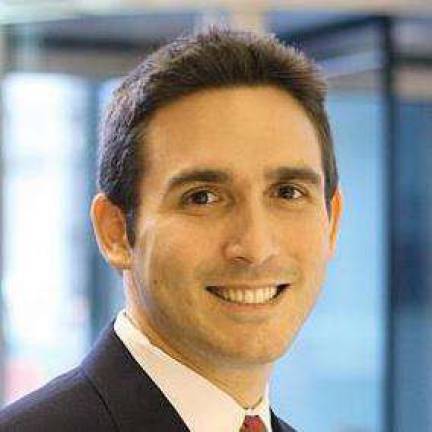Candidates Weigh in on Major East Side Issues




All three council hopefuls oppose Marine Transfer Station
Three Upper East Siders, Assembly Member Micah Kellner, attorney Ben Kallos and Community Board 8 member Ed Hartzog, are running for a seat on the City Council. We interviewed each of them about five issues that Upper East Side residents find most pressing.
How would you make sure that the Marine Transfer Station was not built?
Micah Kellner: The biggest issue in the fifth district is stopping the waste transfer station. We have lawsuits going trying to stop the DEC [the New York State Department of Environmental Conservation] permit. If the next mayor decides they don't want to build it we have to identify new locations, we don't just want it to be re-proposed at a new site. We're going to have to create a new solid waste a management plan. All three sites are deficient. We have to identify a local alternative location in a non-residential area. Bloomberg said barging the trash is the way he would handle it, but that technology is outdated. We have to ask, what are the new technologies that could better help us dispose of our trash?
Ed Hertzog: It's a bad public policy decision. As a parent of a 5-year-old I cannot fathom the thinking that leads people to put a trash dump next to a playground. It would be nice if we could pass the bill that's in Albany right now. We should re-examine the placement of the transfer station. We need a partner in City Hall who's willing to listen. This is a political solution. If you have the same people in different jobs who gave us this transfer station, it won't work.
Ben Kallos: I try to have a wider scope. This issue has been going on for seven years and nothing's happened. New York is 15 percent recycling, and San Francisco is over 75 percent recycling. My question is why is New York City following an obsolete waste management plan. We should be educating people about recycling and not putting 50 percent of our waste into the ground. We need to make sure the vehicles we are using for waste transportation aren't emitting fumes. This is a local issue, but we need to broaden our scope. We're in this together as a city.
The Second Avenue subway construction has been wreaking havoc for the past several years. What do you think can be done to better improve congestion, traffic and businesses on Second Avenue?
Micah Kellner: A big key is the community supporting Second Avenue businesses. I have repeatedly tried to give a tax break to small landlords for lowering the rents on Second Avenue. Businesses are opening up each and every day but it's tough. It's not easy to do business with barriers up. Many of the muckhouses in east 70s are coming down soon, so that will help. We also need to make sure we have enough traffic officers out there to ease congestion.
Ed Hertzog: This has crushed the small businesses. If you walk up and down Second Avenue, it's a ghost town. There's too much passivity in terms of getting information. We need to be more pro-active. Dealing with the lack of accessibility, I'd like to talk to small businesses more and talk about what they need. Whether it's a loan to help them getting over the hump, or create signage so you can get more foot traffic. I would like to talk to them specifically. Let's talk to traffic enforcement agents and ask for a reprieve, and not issue as many of these "gotcha" tickets.
Ben Kallos: I am proud to say I helped launch Shop Second Avenue. We need to support websites like Second Avenue Shopper. I do it myself, and I eat on Second Avenue as much as possible. I encourage people to do the same. We're goin to implement a grants program for businesses too. We need to make sure that when the Second Avenue subway opens up, it isn't opening to a ghost town. We also want to have email or text notifications of construction or blasting times on Second Avenue and beyond. So you can decide to go to sleep earlier if a blasting is happening the next morning.
How do you think you can help the Upper East Side and Roosevelt Island transition smoothly when the Cornell Tech campus is built?
Micah Kellner: The key aspect of this new campus is the demolition and construction processes. Roosevelt Island is a small town in the middle of the city, it was never built or destined to have cars. Cornell is going to have to do as much transportation by barge as humanely possible during the construction. Roosevelt Island cannot sustain that much truck trips coming down Main Street every day.
Ed Hertzog: Roosevelt Island, like much of the rest of the Upper East Side, is suffering from the multi-pronged impact of unchecked overdevelopment. We need to mitigate some of the massive disruption that the building of the Weill Cornell Medical Facility will cause for residents of Roosevelt Island. The most viable solution is the barging of the vast majority of debris and supplies. One subway station and a tram are simply not enough to meet the needs of the island's growing population.
Ben Kallos: The important thing is supporting the local infrastructure. Roosevelt Island is governed by RIOC [Roosevelt Island Operating Corp], and there were no dollars going from Cornell to support RIOC, nothing for the roads, seawall, etc. There are also serious access problems to the Island. None of the elected officials or candidates were willing to testify against Cornell in public in order to represent the community. As long as there's someone who's willing to have that dialogue, we will see a different city.
What are the biggest education issues that need to be tackled on the Upper East Side?
Micah Kellner: Since I've come into office, we've opened three new elementary schools, and I led the fight to the new middle school. District Two is big geographically. Parents don't want to send their kids west side or downtown. Overall, the key is making sure we continue to fund our public school system. We have successful schools on the Upper East Side but a lot of that has to do with the fact that PTAs subsidize them privately. I don't want parents to feel they have to move because classes are bursting at the seams. We have an opportunity in the future to tell a big developer, you want to build a skyscraper? Give me the first three floors to a new school.
Ed Hertzog: We have some great elementary schools in this district. We need more middle school seats. These youngsters are going to grow past the fifth grade. Parents are worried, will we have to send my 11-year-old to go 80 blocks uptown? I would also like to see the remediation of PCBs [polychlorinated biphenyls] and old light fixtures. When we're rehabilitating these schools, I hope we are taking care of this PCB issue. I would advocate for a new middle school within close proximity to Asphalt Green, that's a good start.
Ben Kallos: I am the only candidate who went to public schools so it's important to me. We need to invest in our youth. We want to see all of the children eligible for childcare getting childcare. I would love to see children getting wrap-around schools, getting after-school activities and healthy meals while their parents are still at work. In regard to middle school seating, we have booms in one specific age corridor. I propose Central Business District Schools that are open for 5 or 6 years, and then when the kids age out, we turn the middle school into a high school.
The Upper East Side has some of the least open space in all five boroughs. How do you plan on changing that?
Micah Kellner: If the next mayor stops the construction, the platform of MTS could be turned into open space. We want to green-ify our riverfronts. We have built new pedestrian bridges on the esplanade. There needs to be engineering upgrades- that speaks more to beyond the esplanade, we need to invest in infrastructure. It begins with private-public partnership with Con Ed to make sure we have a world class esplanade. Once u sell a piece of public land its gone forever. We need to open up public lands and make sure people can enjoy them.
Ed Hertzog: Green space is something that builds communities and neighborhoods. They are putting up these large projects on York Avenue, and we get more traffic, noise, pollution and scaffolding. What we're not getting is more green space in return. We need to be rethinking this in terms of land-use and development. We're using public money to finance these private institutions. We need to do something about the esplanade. We need to dedicate funds to fix up this esplanade. We have more seniors in this district, and youngsters. You can't walk them all the way to Fifth Avenue to go into Central Park.
Ben Kallos: I use our open space. Anything we can do to improve the amount of free space and to encourage recreation is something that is important. We are working with League of Independent Theatres and other arts groups around the POPS [privately owned public spaces] around creating a database for these spaces. These spaces should be used for children, adults and to have performances. We want a more active, engaged city. We are also looking to increase open space on Roosevelt Island. Right now, they have to pay for the use of their open space.